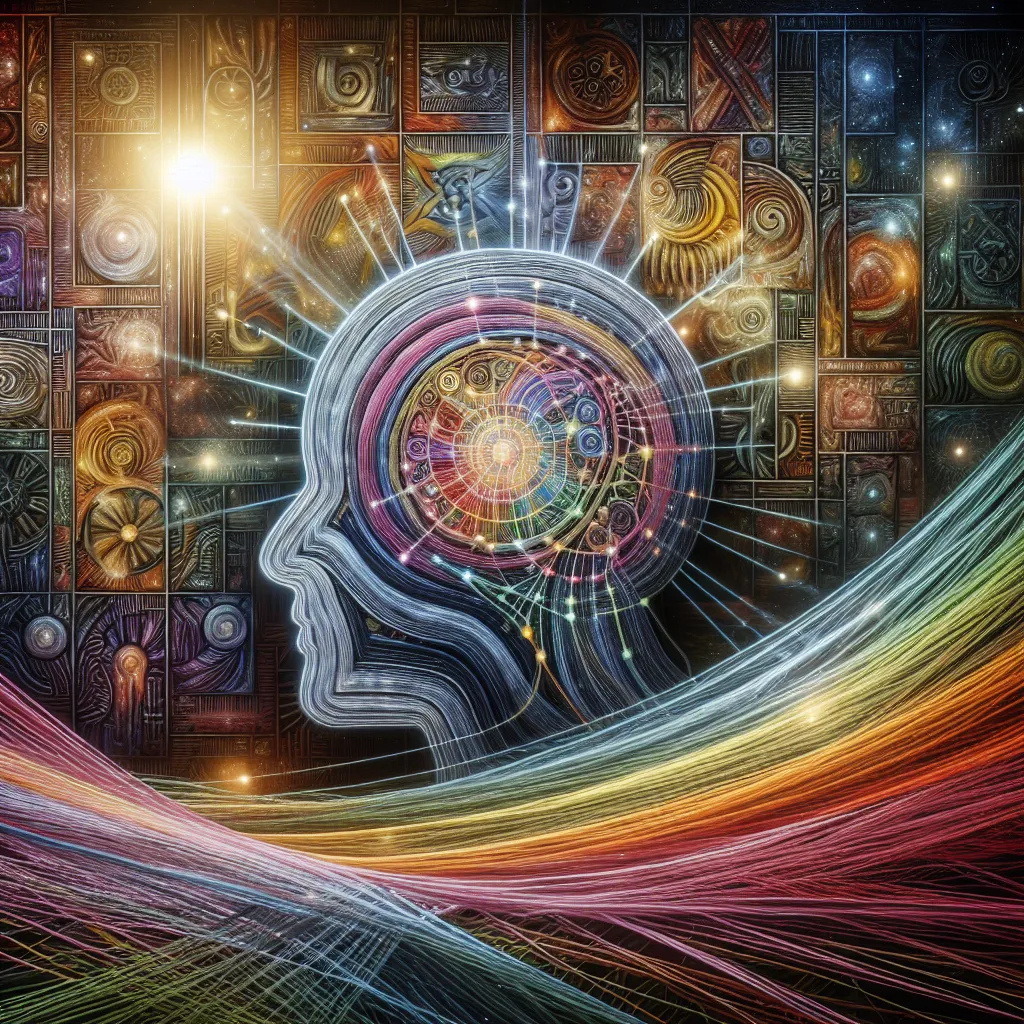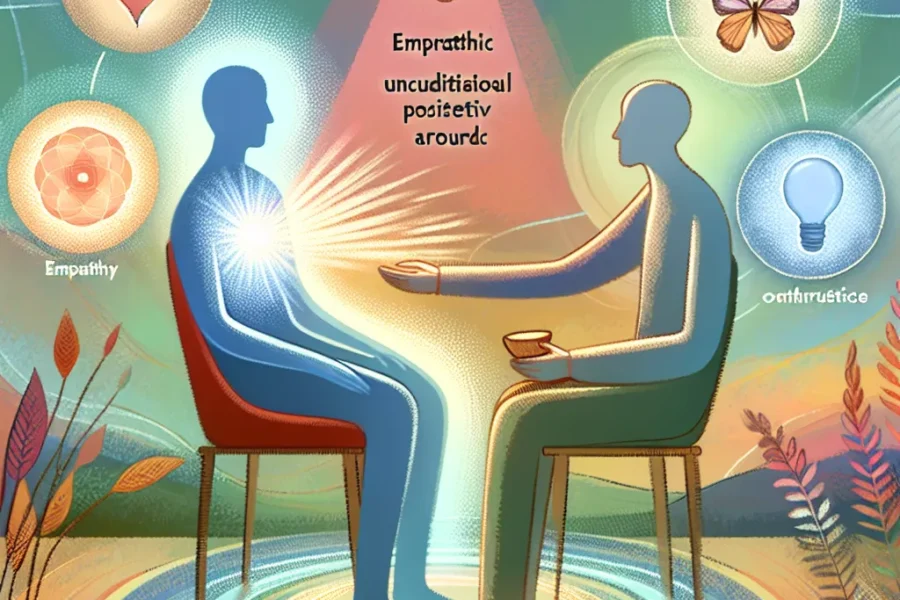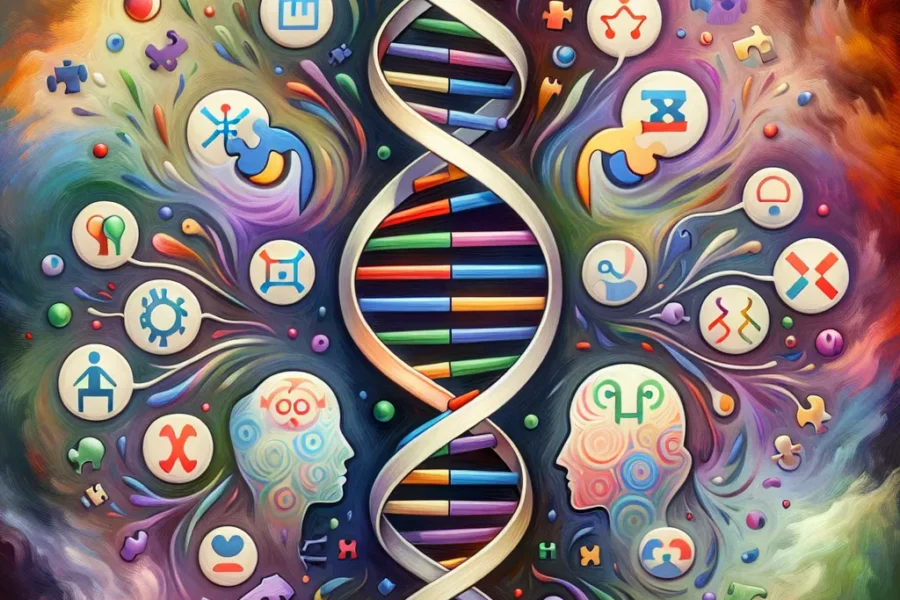Jung’s Exploration of the Collective Unconscious
The concept of the collective unconscious is a central pillar in the understanding of human psychology, a domain that was profoundly explored by the Swiss psychiatrist Carl Gustav Jung. The collective unconscious refers to a part of the unconscious mind that, according to Jung, is shared among beings of the same species and is the product of ancestral experience. It encompasses systems of memories and archetypes that are inherited from our predecessors, influencing the way we perceive the world around us.
Jung’s exploration into the collective unconscious was not just an inquiry into the mind; it was a journey into the soul of humanity. He proposed that while the personal unconscious is made up of each individual’s unique experiences, the collective unconscious consists of innate predispositions we all share. This revolutionary idea transcended the boundaries of personal psychology, venturing into areas that are mythological, spiritual, and cross-cultural.
Archetypes, a cornerstone of Jung’s theory, are the contents of the collective unconscious. They are universal symbols and motifs that appear in myths, fairy tales, dreams, and religions. These archetypes represent fundamental human concerns and experiences such as birth, death, power, love, and the struggle for survival. Some of the most recognized archetypes include the Mother, the Hero, the Shadow, and the Anima and Animus.
Delving deeper into the collective unconscious, Jung highlighted the relevance of dreams as a direct route to accessing these shared psychic elements. He believed dreams were a means by which the unconscious communicates with the conscious mind – a language consisting of images and symbols rather than words. Analyzing dreams provided a window into the collective unconscious, enabling Jung to map the archetypes and their influence on individual and societal behavior.
Jung’s work also included the concept of synchronicity, the idea of meaningful coincidences that occur with no apparent causal relationship yet seem to be connected. He proposed these events are manifestations of the collective unconscious, with archetypes influencing the patterns of our reality. Such occurrences provided a testament to the interconnectedness of all things and the power of the human psyche.
One important application of Jung’s studies of the collective unconscious is in the field of psychotherapy. Jungian analysis focuses on helping individuals understand and integrate the archetypes within their psyche. By doing so, people can achieve individuation – a process of self-realization and wholeness, whereby the conscious and unconscious parts of the mind are brought into harmony.
The collective unconscious also has a profound impact on culture and society. Shared archetypes can be seen in the common themes that arise across different cultures and art forms. These universal patterns shape the narratives of literature, film, music, and art, revealing the underlying threads that tie the human experience together, regardless of individual context.
Jung’s reflections on the collective unconscious paved the way for interdisciplinary dialogue. His work has influenced fields beyond psychology, including anthropology, religious studies, and the arts. By looking at the collective underpinnings of cultures, Jung’s theories offer insights into the shared aspects of human civilization and the transcendental nature of certain experiences.
In the modern digital age, Jung’s ideas maintain their relevance as the internet has become a tool to explore and express the collective unconscious on a global scale. The proliferation of memes, viral trends, and online subcultures demonstrate the active role archetypes continue to play in our collective narrative.
Critics of Jung have labeled his work as mystical, arguing that the collective unconscious cannot be empirically tested or observed. However, proponents counter that the prevalence of archetypal themes across varied cultures and epochs substantiate the existence of these shared psychic elements. With the rise of cognitive neuroscience, there is growing interest in exploring the biological basis for such collective phenomena.
In terms of personal development, understanding the collective unconscious can help individuals recognize the deeper patterns in their lives, enabling them to live with greater awareness and intentionality. This self-awareness fosters an understanding of one’s place within the broader human tale and appreciation for the archetypal roles one inhabits.
Jung’s exploration of the collective unconscious has had a lasting impact on how we comprehend the shared human condition. It serves as a bridge between the personal and universal, providing a framework for decoding the symbolic language that permeates our collective psyche.
In conclusion, Carl Jung’s exploratory work into the collective unconscious has revolutionized the way we think about psychology and its interconnectedness with culture, mythology, and spirituality. By unearthing the significance of the collective unconscious, Jung offered valuable insights that continue to inspire a deeper understanding of the human experience. Through his pioneering efforts, we have gained access to a transformative realm of psychological exploration, one that continues to resonate and evolve in tandem with the progression of human consciousness.



Leave a Comment